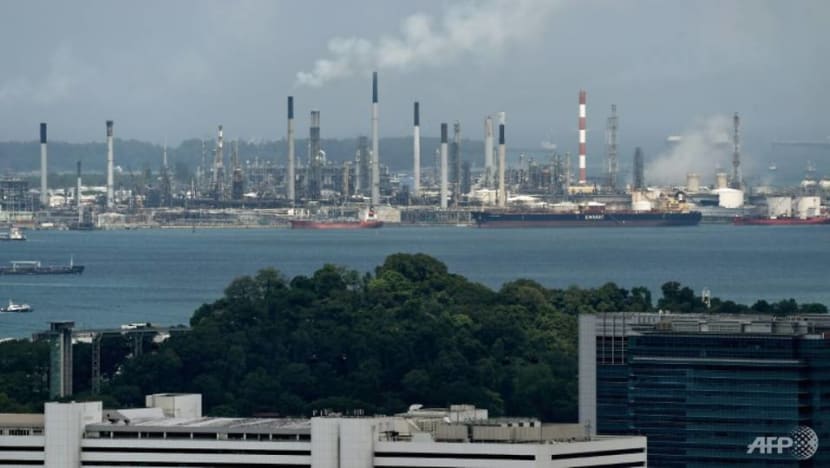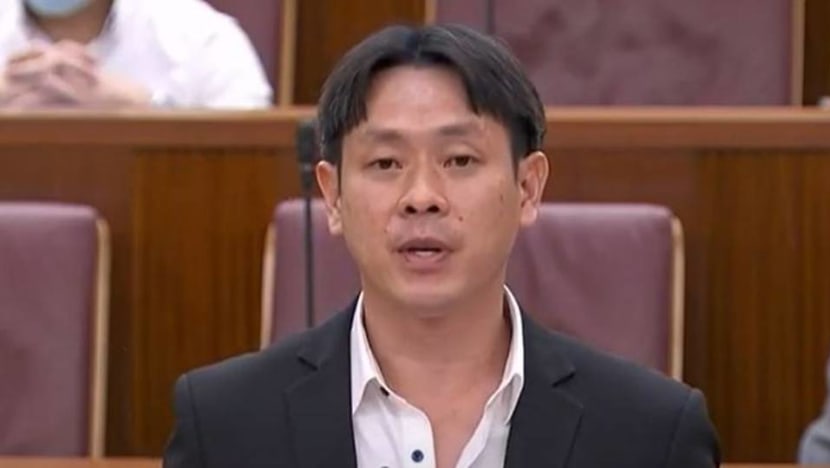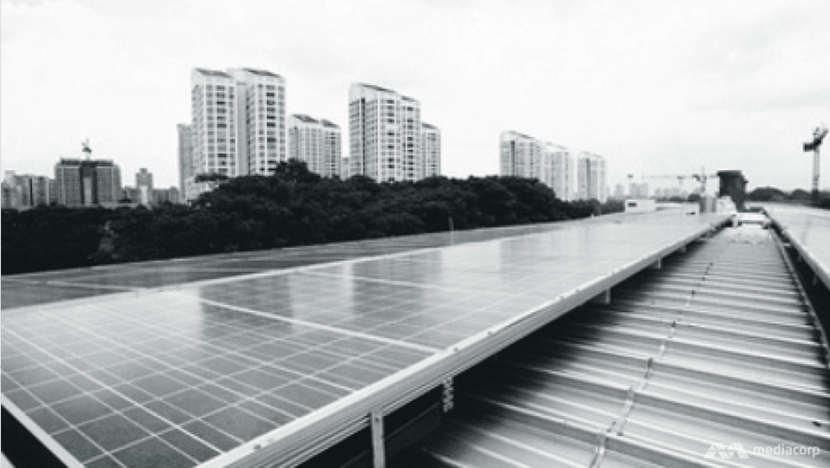In pushing for climate policy, Louis Ng recognises need for trade-offs and to cushion impact on businesses
The chairman of the Government Parliamentary Committee (GPC) on Sustainability and the Environment pushed a major motion on climate change in Parliament. Speaking on The Climate Conversations podcast, he acknowledges the price some businesses will pay in the pivot towards a greener economy.

Singapore is planning a carbon tax on facilities such as petrochemical plants. (Photo: AFP/Roslan Rahman)
SINGAPORE: Following a marathon six-hour debate on a landmark motion in Parliament on Monday (Feb 1), MP Louis Ng (PAP-Nee Soon) arrived right on time for the recording of CNA’s podcast the next morning.
In his interview on The Climate Conversations with the Chief Editor of CNA Digital, Jaime Ho, he admitted to having had a tiring day, following speeches from 18 MPs who spoke on the motion aimed at accelerating and deepening Singapore's efforts against climate change.
Mr Ng said Monday's debate was a culmination of more than a year of conversations with key stakeholders. He cited businesses like ExxonMobil, Woodlands Transport, Changi Airport Group and BlueSG – many of which sit right at the heart of a transformative journey towards a green economy.
READ: Raising carbon tax, improving public sector’s sustainability standards among MPs’ proposals to tackle climate change
It was a line he repeated when asked about a theme that he raised during the debate – that of trade-offs in climate policy.
“We're going to push hard for changes, but I think it's crucial that we don't push people away. And very importantly, we don't push businesses away,’’ said Mr Ng during the podcast which was published on Wednesday.
SOME BUSINESSES WILL BE AFFECTED
Mr Ng said he recognises that strengthening Singapore’s climate change policies means “ultimately some businesses are going to be affected”. This is why he said, in preparing for the motion, he spoke to a wide range of people with different needs to find out what these trade-offs might be.
One group that will come under scrutiny is the energy and chemical sector: Jurong Island is home to some of the biggest oil majors of the world. Petrochemicals and refining contribute 75 per cent of industries' share of Singapore’s greenhouse gases.
READ: Singapore to launch multi-ministry Green Plan to tackle climate change challenges
In the march towards decarbonisation, this industry could find itself in a particularly difficult transition with job losses and reduction in revenues.
Mr Ng was asked during the podcast how he envisions the energy and chemical sector's role in an economy 20 or 30 years down the road.
“Well, my vision for them is to be green. It sounds crazy but we sort of did it where we got two extreme ends, the climate activists and ExxonMobil coming together to discuss this. About how they can green their operations, how they can focus on carbon capture … cleaner fossil fuel and natural gas ... I think that's possible. Again, if we can get everyone onto the table to discuss this, there is a way forward,’’ he said.
It is inevitable that some industries will scale down as the world decarbonises.

Mr Ng pointed to the plan for Singapore to phase out vehicles with internal combustion engines by 2040, and the fact that fossil fuel companies will simply have to evolve to meet this new reality.
“(But) it isn't business and economy versus sustainability and climate change,” he added, pointing to the enormous green growth opportunities that are available for businesses to tap onto.
While businesses themselves work out how to minimise their own pain from this transformation, Mr Ng was clear they should not be left to deal with the impact themselves.
There is room for compromise and it means everyone can come to the table to discuss what these are, giving ideas on how to find solutions.
TRANSPARENCY AND CARBON TAX
He gave an example to illustrate why he thinks competing demands can meet in the middle. Climate activists he spoke to were quite adamant about “naming and shaming” top polluting companies.
Pushback came in arguments claiming that such data would be “business sensitive” and would affect business competitiveness.
When the two groups met during his consultations, a compromise was reached: Name the top carbon-emitting companies without giving “actual emission data”.
The same principle of compromise can be applied to another issue raised in Parliament on Monday – the desired point for Singapore’s carbon tax.
Several MPs raised the point that the current projected level of S$15 per tonne of greenhouse gas emissions by 2030 was too low especially when compared against the UN’s Intergovernmental Panel for Climate Change’s recommendation of at least USS$135 (S$179.76).
The current level for the tax is S$5 per tonne, with the Government having committed to reviewing this by 2023, with the view to increasing it to between S$10 and S$15 per tonne by 2030.
An increased tax will add to business cost, acknowledged Mr Ng.
So by way of cushioning this, the collected tax can then be pumped back into businesses to fund their greening efforts.
Commentary: Saving Dover Forest and the plight of the Singapore urban planner
“So it's not just about collecting money, but also about giving back. And hopefully we are giving them back this revenue, the emissions will reduce, which is the ultimate goal of the carbon pricing act,’’ he said.

And if costs are passed to consumers, again, the Government can step in to provide incentives or vouchers, particularly for lower-income homes, to purchase more efficient appliances.
He added that with more research, awareness and time, Singapore could arrive at a price point that can be meaningful and sustainable to businesses too.
Asked about his personal takeaway watching the proceedings in Parliament, Mr Ng said he was “very glad” to see the wide range of suggestions – from how to implement a higher carbon tax to transparency and education.
“Now we have this whole pot of ideas that the Government can now go back, look into and then develop our policies and hopefully make some announcements during Budget and during the upcoming committee of supply debates as well.’’
Listen to Louis Ng’s complete conversation with Jaime Ho on the polarisation of views, electric vehicles and what he hopes to see in Singapore’s green future on CNA’s The Climate Conversations podcast:














